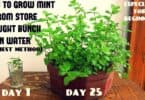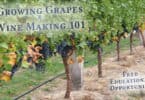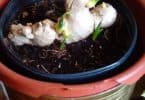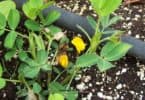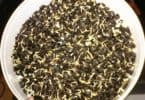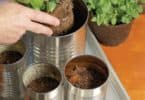Nothing beats homegrown food. It is healthier, cheaper and tastes better. Organic food is healthier because no chemicals have been used on it. It is cheaper because one of the only costs is the seeds. Organic food tastes better for several reasons; 1) since no pesticides or chemicals from fertilizers are used, the flavor of the fruit or vegetable is the only flavor there is, 2) they are picked and eaten at their peak, whereas, store produce is picked early so that they will not spoil in transit, 3) hard work makes produce taste better.
Seeds or Plants – Seeds or plants should be purchased through vendors that are certified organic. There are many catalogs and online sites that sell nothing but organic items, however, organic produce is getting easier to find at local garden centers, grocery stores and anywhere else that plants and seeds can be purchased. Both seeds and small plants can be started indoors. When the ground is warm enough they can be moved outdoors.
Containers, regular gardens or hay bales? – Organic gardens can be planted anywhere.
Containers are great for people with less property. They can be placed on a porch, on the front steps, along the driveway or in a sunny window. They are easier to care for and can be moved from sunny spot to sunny spot.
Regular gardens are great for people who have space and want a larger garden. The soil is already there, although it probably still needs some work. Gardens can be edged with something or left as is. Regular gardens are wonderful for large produce like corn, spreading produce like zucchini or climbing produce like cucumbers.
Hay bale gardens are great for people who have bad backs because the hay bales can be stacked as high as they are needed. Bales can be placed anywhere (even on a deck) and need less watering. Rabbits will not bother them if they are high enough although deer still need to be watched out for.
Soil and Fertilizing – It is best to make soil when going organic. Although organic soil can be purchased, it is expensive. Healthy organic soil can be made by composting. If you are just starting out with composting then you will have to buy some organic soil to start your garden, but if you start composting you will soon have rich, dark soil for your garden. Compost will also produce compost tea which is a natural alternative to fertilizer and a must for organic gardens.
Water – Watering a garden just right is one of the keys to a good garden. Too little and the plants wither and die, too much and they mold or rot. Read up on how much water the produce you have chosen requires. Take into consideration the type of garden you have. If it is a container garden then do you have good drainage? Are the drainage holes big enough to let out water and soak up water, yet small enough to keep soil from escaping? With a regular garden you have to consider the soil. Is it good dirt or clay dirt? Is there too much sand in it? Does your garden sit in a valley and retain water for days on end? With hay bales gardens you can stick your finger into the hay; if it feels like a damp sponge than it is just right. Consider rain barrels for your watering needs. Watering and sun will also bring weeds so remember to weed regularly.
An organic garden that is taken care of will soon reward you with healthy, fresh and delicious produce.
Additional Information:
Healthy Menu Mailer: Grow Organic Food
Beginner Gardening: Straw Bale Gardening
<>


